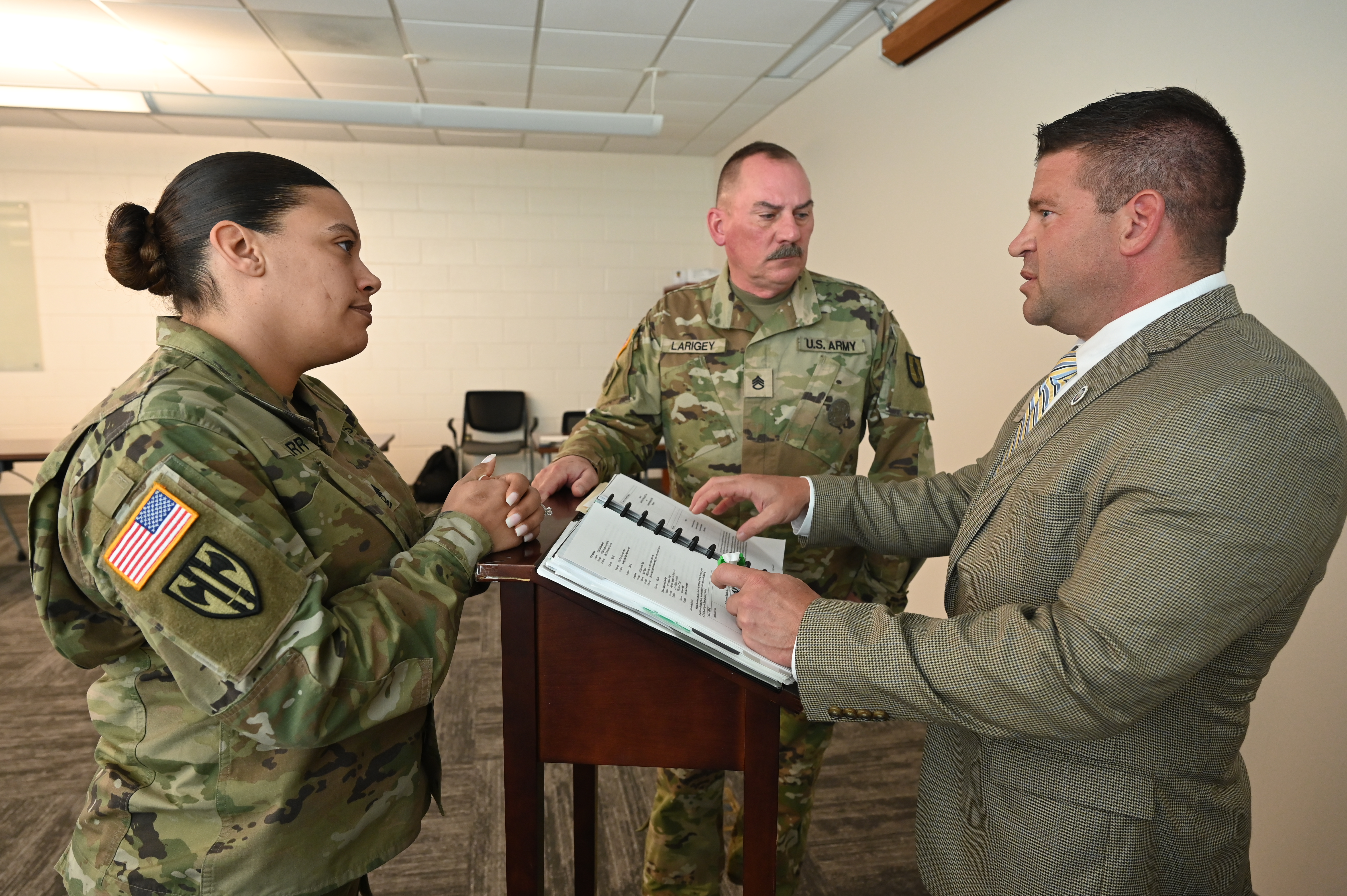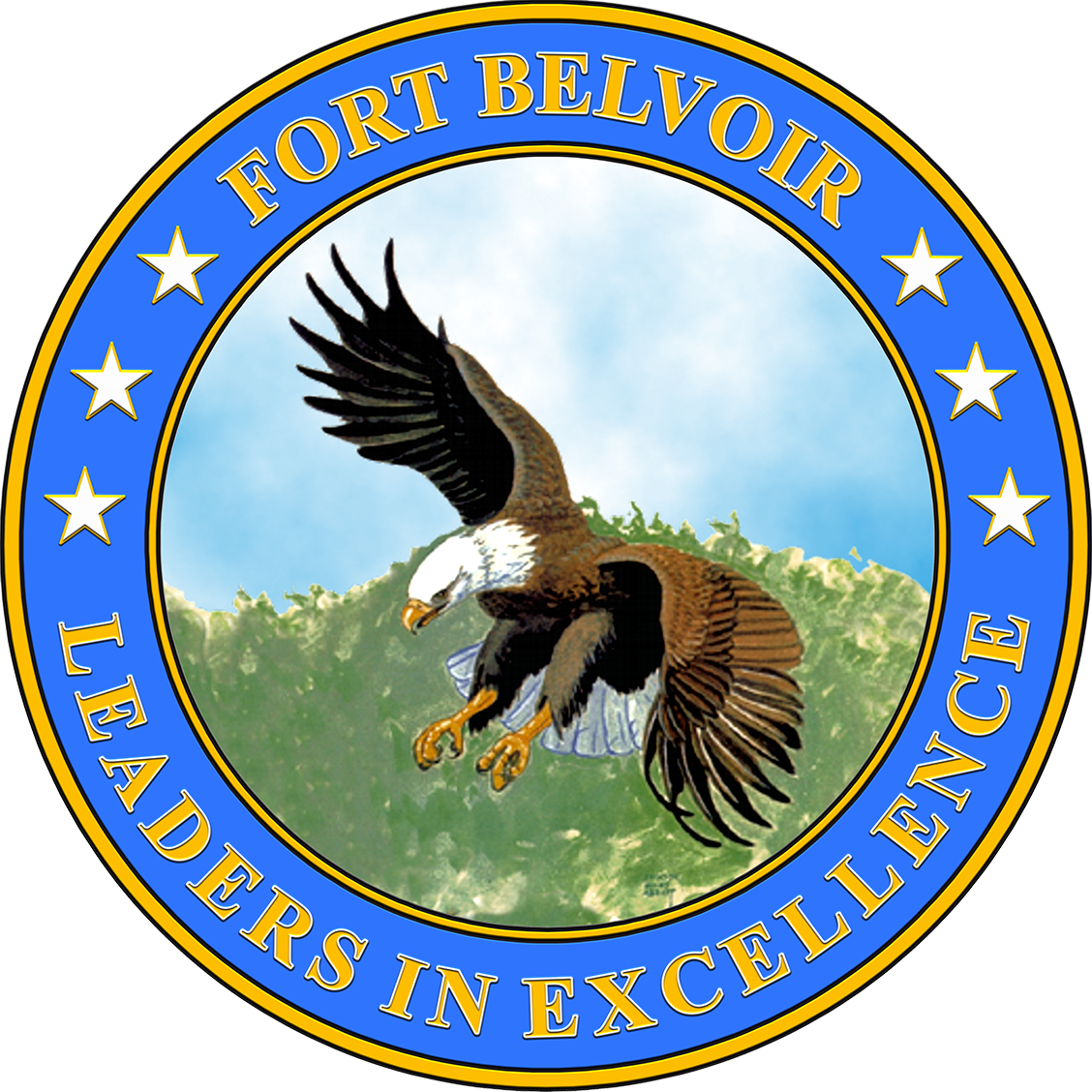
CFD-IC: Mentors, guides, and catalysts for effective instruction
FORT BELVOIR — Service members across different military occupational specialties are feeling the pressure. Gathered together in a classroom is an engineer, a combat medic, a legal administrator, and a hodgepodge of other MOSs—spanning active, Reserve and National Guard components. The Common Faculty Development-Instructor Course at the D.C. National Guard’s 260th Regiment Regional Training Institute (RTI) gives both officers and noncommissioned officers like U.S. Army Staff Sgt. Erica Williams the tools to build lesson plans and effectively reach their intended audience.
“I’m currently working on better ways to inform members and their families about their TRICARE benefits,” said U.S. Army Staff Sgt. Erica Williams, District of Columbia National Guard. “I speak to members across all 50 states and territories very often. My goal with this course is to communicate and engage with members preparing for deployment, so they can quickly remediate their own issues more effectively.”
The 10-day/80-hour course is specifically designed for new instructors, trainers, and facilitators. To meet the qualification standard, prospective faculty members must successfully complete the CFDP foundation course. Phase I addresses adult learning principles articulated in the Army Learning Model and incorporates nationally and internationally recognized faculty competencies.
“The people who come through this course will be able to teach across different platforms anywhere service members are stationed. This is the first step,” said U.S. Army Master Sgt. Raven Carr, chief instructor, CFD-IC. “This course teaches how to facilitate education in a military atmosphere so they can leave here and be more effective communicators anywhere in world.”
The course is designed to hone the skills of instructors navigating the adult learner environment from effectiveness as communicators to classroom management. Additionally, the curriculum during CFD-IC reinforces the U.S. Army Training and Doctrine Command (TRADOC) regulation 600-21, TRADOC 350-70, and Army Regulation (AR) 350-1.
“Upon completion of the CFD-IC program, they possess the ability to capture audiences, foster engagement, and inspire learners to reach new heights of understanding,” said U.S. Army Col. Brian Borakove, G-3/5/7, District of Columbia National Guard, who served as a guest speaker for CFD-IC Class 24-002. “Their completion of this course not only validates their hard work, but also serves as a testament to their readiness to embark on a professional journey as educators. They’re not merely instructors, they’re mentors, guides, and catalysts for positive change.”
The course is open to E-6 and above from all military branches and components. The next course is scheduled for Aug. 4-16. To learn more email U.S. Army Master Sgt. Raven Carr, chief instructor, CFD-IC, at raven.l.carr.mil@army.mil or U.S. Army Staff Sgt. Kenneth Larigey, instructor, CFD-IC, at kenneth.r.larigey.mil@army.mil.
Master Sgt. Arthur Wright
DC National Guard





